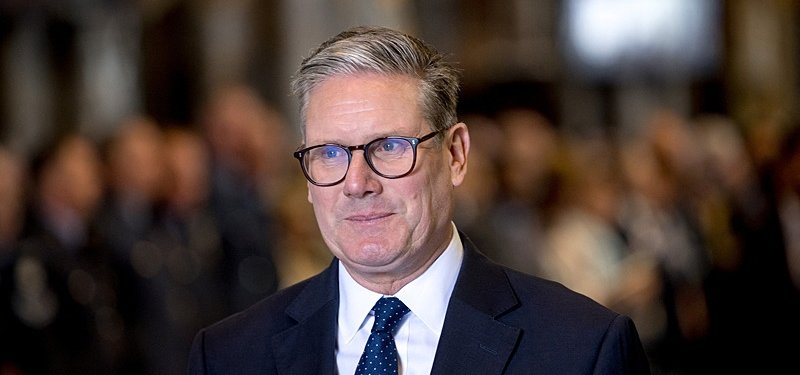News
Supreme Court Decision Allows Emergency Abortions in Idaho

WASHINGTON, D.C. — In a significant development for abortion rights, the Supreme Court has dismissed an abortion case from Idaho, allowing women to receive emergency abortions despite the state’s near-total ban. This decision provides a temporary victory for abortion rights supporters.
The justices did not address the central issue of the case, which involved a federal law requiring hospitals to provide stabilizing treatment to any patient with an “emergency medical condition.” Idaho argued that this federal law cannot override its stringent abortion ban, which includes an exception only for the life—but not the health—of the mother. The Biden administration opposed this view and filed a lawsuit.
In a 6-3 vote, three conservative justices joined all three liberal justices to dismiss the case, deeming it “improvidently granted.” This decision temporarily shields doctors from prosecution if they determine that an abortion is the best treatment for a patient in a medical emergency.
However, the court’s avoidance of the case’s substance leaves the possibility for future challenges to the Emergency Medical Treatment and Labor Act (EMTALA). Liberal Justice Ketanji Brown Jackson criticized the dismissal, arguing that the court had “shirked its duty to resolve a pressing legal issue.”
“The conflict between state and federal law still exists—in real life,” Justice Jackson stated, referencing Idaho’s strict abortion ban. “There is simply no good reason not to resolve this conflict now.” Her sentiments were echoed by leading abortion rights activists who believe the court’s decision leaves women vulnerable.
In Idaho, abortion is banned throughout pregnancy except in cases of rape, incest, some nonviable pregnancies, and when “necessary to prevent the death of the pregnant woman.” Doctors who violate this law face prison time, hefty fines, and the loss of their medical licenses.
Court documents revealed that 678 Idaho doctors claimed the ban had already harmed women who were denied care while suffering from severe pregnancy complications. Conversely, anti-abortion activists argue that doctors have misinterpreted the law, which they assert allows for life-threatening situations.
The Supreme Court’s decision, while offering temporary relief, does not fully resolve the ongoing conflict between state and federal law regarding abortion rights in Idaho and potentially other states.
News
Nine killed and 25 injured in shootings at school and home in Canada

Canada is reeling after a deadly shooting in British Columbia that left nine people dead and at least 25 others injured, in an incident that has shaken a small, close-knit community and prompted an outpouring of national solidarity.
Police say the attacker killed nine people before taking their own life on Tuesday. Six victims were found dead inside Tumbler Ridge Secondary School, while a seventh person later died on the way to hospital. The body of the attacker was also discovered at the school. In addition, two more people were found dead inside a nearby residence, confirming that the violence extended beyond the school grounds.
An active shooter alert sent to the local community described the suspect as a “female in a dress with brown hair”. Authorities have not yet released further details about the individual as investigations continue.
Emergency services reported that at least two people were taken to hospital with serious or life-threatening injuries. As many as 25 others were being treated for non-life-threatening injuries, highlighting the scale of the response now underway to support survivors and their families.
Canada’s Prime Minister, Mark Carney, said he was “devastated” by the attack and expressed full support for those affected. He confirmed that his government “stands with all British Columbians as they confront this horrible tragedy”. In a sign of the seriousness of the moment, the prime minister cancelled his planned trip to the Munich Security Conference in order to focus on the national response.
British Columbia’s Minister of Public Safety and Solicitor General, Nina Krieger, praised the rapid actions of law enforcement, saying police arrived at Tumbler Ridge Secondary School within two minutes of receiving reports of an active shooter.
“This is a small, tight-knit community,” Krieger said, as she thanked responding officers “for their courage, for their dedication and professionalism”. She added that their swift intervention “no doubt saved lives today”, underlining the importance of preparedness and rapid response in moments of crisis.
Earlier, Krieger said the “devastating events are sending shockwaves through the community and the entire province”, as grief counsellors, medical teams and support services were mobilised to help those affected.
News
Starmer Vows to Stand Firm as He Rallies MPs Amid Mounting Political Pressure

Sir Keir Starmer has delivered a defiant message to Labour MPs, insisting he will not step aside despite growing political pressure, as he framed the challenge from Reform UK as an existential battle for both his party and the country.
Addressing colleagues, the prime minister acknowledged that opposition to his leadership is not new, saying he has faced critics throughout his political journey and continues to do so now. He argued that many of those attacking him are fundamentally opposed to a Labour government in any form, and particularly to one that seeks to deliver lasting change.
“I have had my detractors every step along the way, and I’ve got them now,” Starmer told MPs. “Detractors that don’t want a Labour government at all, and certainly not one to succeed.”
However, he made clear that resignation is not an option, stressing that he feels a deep responsibility to honour the mandate given to him by the electorate. Starmer said walking away would betray voters and risk destabilising the country at a critical moment, drawing a contrast with previous political upheavals that, in his view, led to uncertainty and disorder.
“But I’ll tell you this,” he said. “After having fought so hard for the chance to change our country, I’m not prepared to walk away from my mandate and my responsibility to my country, or to plunge us into chaos, as others have done.”
The Labour leader described the rise of Reform UK as the most serious political challenge of his career, characterising it in dramatic terms as a defining struggle for the future direction of Britain. He warned that the contest is not just about party politics, but about the values that underpin the country.
He labelled the confrontation with Reform UK as “the fight of our lives, the fight of our times,” urging MPs to recognise the scale of what is at stake and to remain united in the face of growing pressure.
Starmer concluded his remarks with a highly personal and emotional pledge, underlining his commitment to continue leading and fighting for what he believes in. He said his resolve would not waver and called on Labour MPs to see the battle as a shared one, rooted in protecting the country’s future.
“I’ll tell you this, as long as I have breath in my body, I’ll be in that fight, on behalf of the country that I love and I believe in, against those that want to tear it up,” he said.
“That is my fight, that is all of our fight, and we’re in this together.”
News
Iranian Nobel Laureate Faces New Sentence as Support and Global Scrutiny Intensify

Iranian Nobel Peace Prize laureate and human rights activist Narges Mohammadi has been handed additional prison sentences totalling seven-and-a-half years, according to her lawyer, in a development that has drawn renewed international attention to her case and the broader human rights situation in Iran.
Mohammadi, 53, was sentenced by a court in the north-eastern city of Mashhad to six years in prison for what authorities described as “gathering and collusion,” and a further one-and-a-half years for “propaganda activities,” her lawyer, Mostafa Nili, said in a statement posted on social media on Sunday. The ruling also includes a two-year travel ban and two years of internal exile to the eastern region of Khusf.
The latest sentences follow Mohammadi’s arrest in December, when Iranian authorities accused her of making “provocative remarks” during a memorial ceremony. Her family has said she was beaten during the arrest and later taken to hospital. The activist has since been returned to detention, despite concerns over her health.
Nili, who said he spoke to Mohammadi for the first time since 14 December, reported that she had been hospitalised three days ago because of her “poor physical condition” before being transferred back to the detention centre where she is currently being held. He added that their phone call was abruptly cut off while she was describing the circumstances of her detention.
The Narges Foundation, which supports Mohammadi and campaigns on her behalf, described the court hearing on Saturday as a “sham” and said she began a hunger strike on 2 February in protest against her treatment. The foundation has repeatedly warned that her health is fragile after years of imprisonment and medical neglect.
Mohammadi’s husband, Taghi Rahmani, said she refused to mount a defence in court, explaining that she does not recognise the legitimacy of the judicial process she faces. He said she attended the hearing in silence, did not speak, and did not sign any documents, describing the proceedings as “a mere charade with a pre-determined end.
Her daughter, Kiana Rahmani, said she was “gravely concerned” about her mother’s physical and mental wellbeing, echoing fears expressed by rights groups and supporters around the world.
Mohammadi has already spent more than a decade of her life behind bars. According to the Narges Foundation, the latest ruling brings the total length of prison time she has been sentenced to over the years to 44 years. Since 2021, she has been serving a 13-year sentence on charges of “propaganda against the state” and “collusion against state security,” accusations she has consistently denied.
Despite her imprisonment, Mohammadi was awarded the Nobel Peace Prize in 2023 in recognition of her long-standing activism against the oppression of women in Iran and her advocacy for human rights. Supporters say the honour has given her case unprecedented international visibility, even as legal pressure against her continues to mount.
She was granted a temporary medical release from Tehran’s Evin prison for three weeks in December 2024, raising hopes among her family and supporters that her health needs might finally be prioritised. However, she was expected to return to prison soon after, where she has been serving multiple overlapping sentences.
Her most recent arrest occurred while she was attending a memorial for Khosrow Alikordi, a lawyer who was found dead in his office in early December. Norway-based organisation Iran Human Rights has called for an independent inquiry into his death, describing the circumstances as “suspicious.”
The Narges Foundation previously said eyewitnesses at the memorial saw Mohammadi being attacked by around 15 plainclothes agents, alleging that some pulled her hair and beat her with batons and clubs. Mashhad prosecutor Hasan Hematifar said Mohammadi was among 39 people arrested and claimed that she and Alikordi’s brother had encouraged participants to chant “norm-breaking slogans” and disturb public order.
-

 News1 week ago
News1 week agoUkrainian Community Mourns Miners Killed in Strike as Rescue Efforts and International Condemnation Grow
-

 News1 week ago
News1 week agoOpposition Demands Inquiry as Mandelson Steps Away from Labour Amid Epstein Document Fallout
-

 Business1 week ago
Business1 week agoChina bans hidden car door handles over safety concerns
-

 News1 week ago
News1 week agoClintons Agree to Testify in Epstein Probe as Congress Pauses Contempt Push
-

 News6 days ago
News6 days agoAndrew and Epstein asked exotic dancer for ‘sex acts,’ legal letter claims
-

 News7 days ago
News7 days agoLife Sentence Brings Closure After 2024 Attempt on Trump’s Life
-

 News2 days ago
News2 days agoRussia Identifies Suspects in Shooting of Senior General
-

 News3 days ago
News3 days agoThai PM claims election victory as Conservatives Take Commanding Lead










